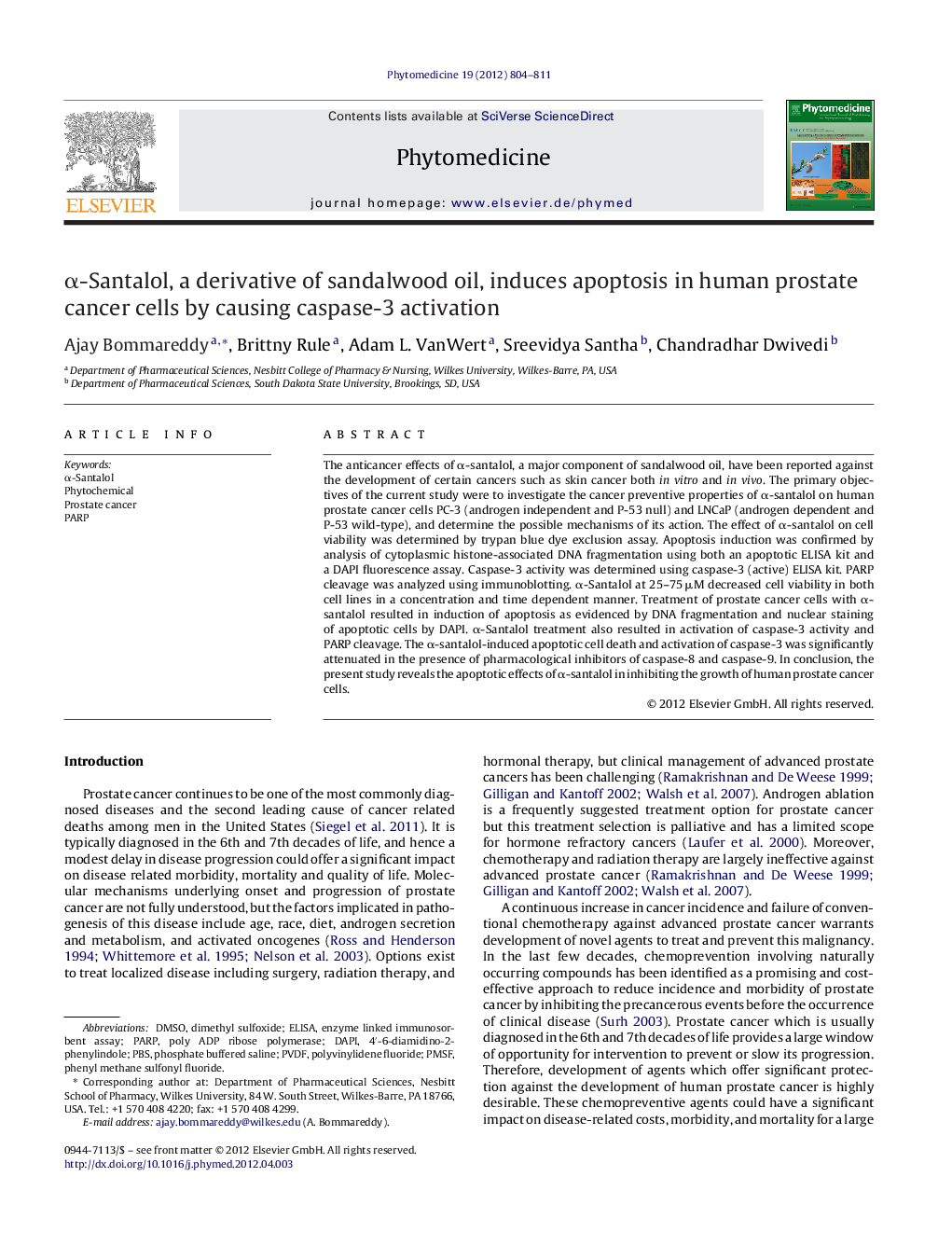| Article ID | Journal | Published Year | Pages | File Type |
|---|---|---|---|---|
| 2496831 | Phytomedicine | 2012 | 8 Pages |
The anticancer effects of α-santalol, a major component of sandalwood oil, have been reported against the development of certain cancers such as skin cancer both in vitro and in vivo. The primary objectives of the current study were to investigate the cancer preventive properties of α-santalol on human prostate cancer cells PC-3 (androgen independent and P-53 null) and LNCaP (androgen dependent and P-53 wild-type), and determine the possible mechanisms of its action. The effect of α-santalol on cell viability was determined by trypan blue dye exclusion assay. Apoptosis induction was confirmed by analysis of cytoplasmic histone-associated DNA fragmentation using both an apoptotic ELISA kit and a DAPI fluorescence assay. Caspase-3 activity was determined using caspase-3 (active) ELISA kit. PARP cleavage was analyzed using immunoblotting. α-Santalol at 25–75 μM decreased cell viability in both cell lines in a concentration and time dependent manner. Treatment of prostate cancer cells with α-santalol resulted in induction of apoptosis as evidenced by DNA fragmentation and nuclear staining of apoptotic cells by DAPI. α-Santalol treatment also resulted in activation of caspase-3 activity and PARP cleavage. The α-santalol-induced apoptotic cell death and activation of caspase-3 was significantly attenuated in the presence of pharmacological inhibitors of caspase-8 and caspase-9. In conclusion, the present study reveals the apoptotic effects of α-santalol in inhibiting the growth of human prostate cancer cells.
Graphical abstractα-Santalol, a major component of sandalwood oil showed anti-cancer activity in prostate cancer cells by inducing apoptosis and activation of caspase-3 activity. These results provide new evidence in support of α-santalol as a promising agent for preventing prostate cancer.Figure optionsDownload full-size imageDownload high-quality image (146 K)Download as PowerPoint slide
